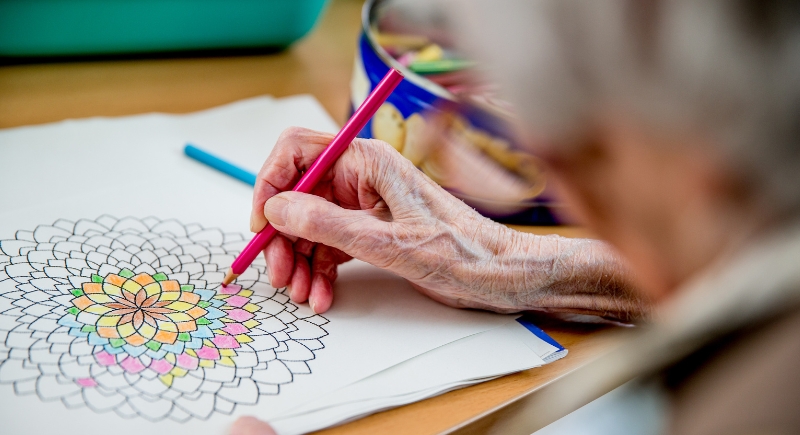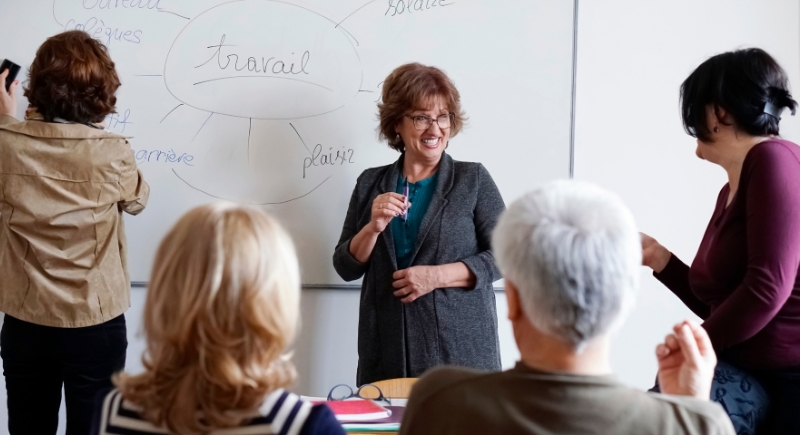10 New Hobbies to Try in Retirement for a Sense of Purpose
Retirement changes the pace of life completely. Suddenly, time feels both free and unfamiliar, and finding a sense of purpose again often means experimenting. This is why you need some hobbies that can give your mind a challenge and your hands something productive to do.
Here are some options worth exploring, not to fill hours, but to bring something new and meaningful into them.
Pickleball

Credit: Getty Images
One of the most accessible sports for adults over 60 is pickleball. It’s low-impact, easy to learn, and played in short sessions that don’t require much endurance. Community centers and local parks across the country now host regular drop-ins, leagues, and beginner-friendly lessons. It offers a steady way to stay active and socially connected, which makes it a popular choice in retirement.
Theater

Credit: DAPA Images
Someone with stage fright might never consider theater, but there’s far more to a production than what happens under the lights. Behind every performance are people managing sets, props, costumes, lighting, and sound. These roles provide avenues for collaboration towards a shared goal, without needing to memorize lines or face an audience.
Podcasting

Credit: Getty Images
Start by picking a topic you care about—retirement experiences, local history, favorite books—and record short episodes using a basic microphone or even your phone. Podcasting helps organize thoughts and sharpen communication. It also encourages planning, editing, and follow-through without requiring advanced tech skills.
Music

Credit: halfpoint
A study found that playing music can strengthen memory and auditory processing in older adults. Instruments like the piano, guitar, or even recorder encourage hand coordination and focus. The act of practicing itself, like trying something, correcting mistakes, and repeating, keeps you mentally active.
Soap and Candle Making

Credit: pexels
For those who enjoy hands-on tasks with a clear outcome, soap and candle making can be a rewarding fit. It involves simple materials, steady attention, and a process that doesn’t rush you. Many retirees who like working alone or following step-by-step instructions find it calming. The supplies are easy to manage, and finished items can be gifted or sold.
Gardening

Credit: Getty Images
People tend to think they can’t manage a garden—maybe they’ve never tried, or worry they’ll kill the plants. But gardening doesn’t have to be complicated or physically demanding. Initially, trying a few herbs, flowers, or vegetables in pots can be enough. The process teaches through trial, and most mistakes are fixable.
Genealogy

Credit: pixabay
Family stories fade quickly if no one records them, and once a generation passes, those details become harder to recover. Old photos, letters, and even casual memories can contain valuable clues about where your family came from and how they lived. This is where genealogy comes in as a methodical way to gather documents, names, and timelines before they disappear.
Cooking

Credit: Canva
Various older adults find themselves thinking more carefully about food—what they eat, how it’s made, and why it matters. Cooking becomes a way to take control of meals and enjoy the process, not just the result. This is a chance for you to revisit old recipes, try unfamiliar ingredients, or adjust dishes to suit changing health needs.
Fostering Pets

Credit: Getty Images
According to research on aging and mental health, a consistent daily routine can significantly reduce feelings of loneliness and depression in older adults. Fostering a pet offers just that: a clear reason to get up, move around, and care for another living being. It includes manageable tasks like feeding, walks, and check-ins, with no pressure of permanent ownership.
Photography

Credit: Getty Images
Taking pictures of nature forces you to slow down and notice what’s around you. Whether it’s light patterns through trees, a particular bird species, or seasonal changes, you start seeing details differently. You’ll also begin to anticipate moments, like waiting for a shadow to move or a subject to land.
Memoir Writing

Credit: Canva
Retirement creates space for reflection, and memoir writing helps turn that reflection into something lasting. First, write about something specific, such as your first apartment, a conversation that stuck with you, or a job you nearly forgot you had. Make sure to focus on one memory at a time instead of trying to tell your whole life story all at once.
Coloring and Calligraphy

Credit: Getty Images
You might think this is just for children, but activities like coloring and calligraphy ensure steady concentration and calming repetition that many adults appreciate. And the good news is that they don’t require artistic talent, only a willingness to sit down and try. Both invite relaxation through creativity and colors.
Stargazing

Credit: Wirestock
Try incorporating stargazing in your life as a consistent evening habit. You won’t even need a telescope, since there are numerous astronomy apps that identify constellations, planets, and satellites based on your location.
Knitting

Credit: Canva
There are a large number of seniors out there who assume knitting is too detailed or difficult to pick up later in life. But what some individuals don’t realize is that it doesn’t require perfect dexterity or artistic skill, but rather just a willingness to learn a few basic stitches. Feel free to visit community centers and libraries that offer beginner classes.
Language Learning

Credit: Getty Images
Learning isn’t limited to the inside of a classroom, and retirement is a great time to explore that idea. Language study no longer requires textbooks or formal courses—apps and online tools break everything into manageable steps. Progress is easy to track, and lessons can be done at your own pace.